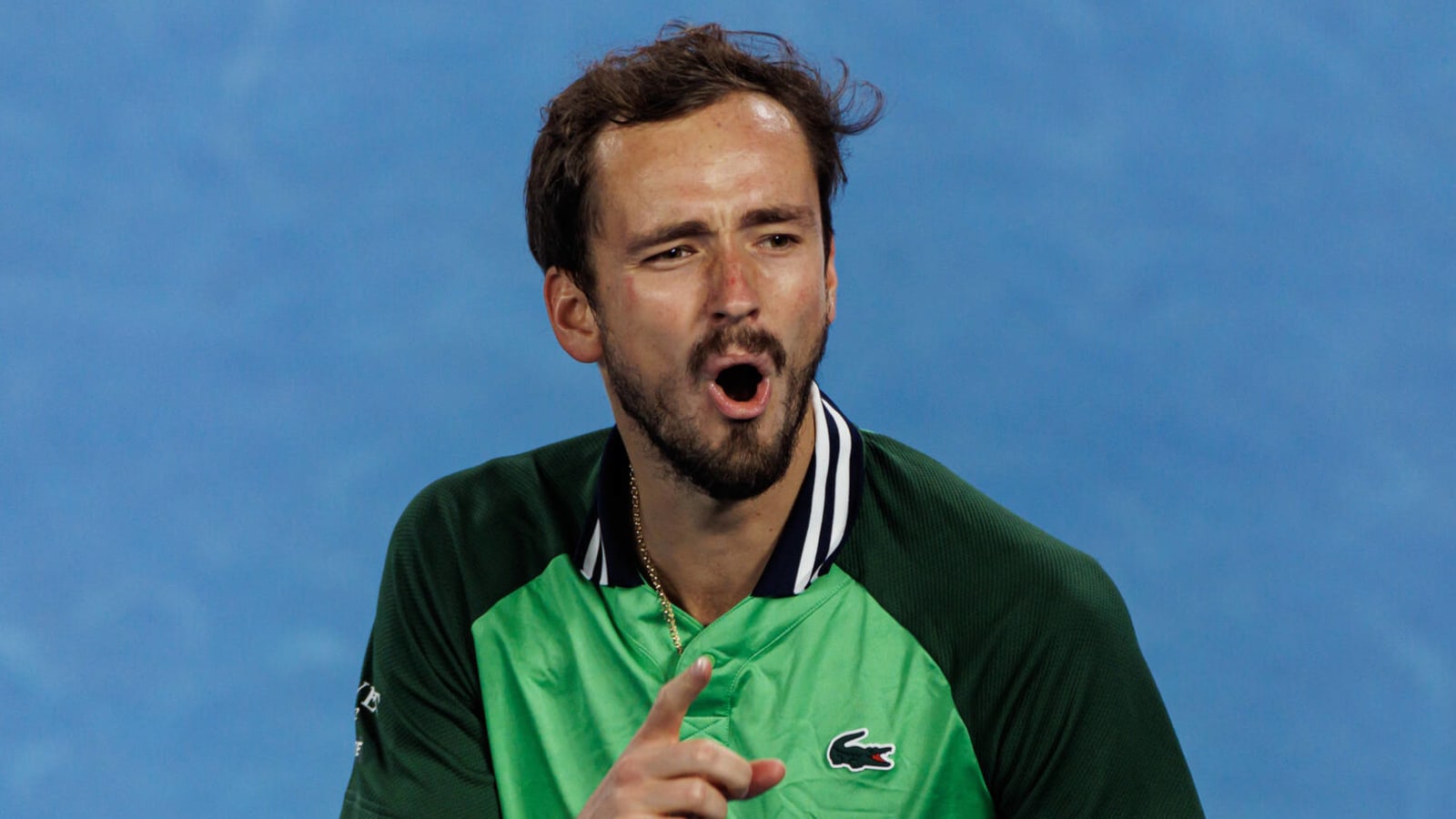
In defense of Daniil Medvedev, tennis' perennial runner-up
Daniil Medvedev has been called many things recently – an octopus, an unfair player, an unwitting feminist icon – but he has not, unfortunately, been called a Grand Slam champion.
The Russian qualified for two Major finals in the past six months but lost both of them – first the 2023 U. S. Open to Novak Djokovic, then this weekend’s Australian Open to Jannik Sinner. That's a lot of last-hurdle failure in a short amount of time and from the outside, it’s looked awfully miserable to be Medvedev.
But to hear the man himself tell it, things couldn’t be better.
“Now, I’m dreaming more than ever. But I would say it’s not anymore a kid who is dreaming," Medvedev said, reflecting after his AO loss to Sinner on Sunday. "It’s me, myself, right now, a 27-year-old who is dreaming, and who’s doing everything that is possible for my future and for my present. I love it.”
That’s the beauty of Medvedev, a perplexing, awkward, utterly idiosyncratic athlete whose refusal to fit the mold brings him right back around to brilliance. He has never looked like his peers on the circuit; where they are steely (like Djokovic) or explosive (like Rafael Nadal) Medvedev is neither – and noticeably so.
When Medvedev, plays, he is a 6-foot-6 tornado of ungainly, impossible shapes. He often disappears for sets at a time, lost deep in the quagmire of his own brain. He doesn’t tend to win because he outplays his opponents; he wins because he outlasts them, sometimes until 3:40 in the morning, often leveraging the crowd as a tool to help him stay competitive long after many would fold.
In short, he is not the awe-inspiring performer that we’ve come to cherish in men’s tennis. He’s something different – a regular guy who just won’t quit, working with his flaws and figuring things out in real time on the court.
Relive this rollercoaster ride on RLA #BounceBackwithLifeSpace • #BounceBack@wwos • @espn • @eurosport • @wowowtennis pic.twitter.com/ohBU5aVfq4
— #AusOpen (@AustralianOpen) January 27, 2024
But while Medvedev’s peers outclass him in coordination and showmanship, he has something that they do not: endless grace for himself and his failures. He’s is a man who can look loss right in the eye and see it as an opportunity to dream. And for tennis, a sport in which the mental game is just as important as the physical one, that self-forgiveness is its own kind of trophy.
Medvedev isn’t always the bridesmaid. He took home the 2021 U.S. Open title, beating Djovokic in straight sets. He has broken through in a Grand Slam and he’ll break through again. But while many cringe at Medvedev’s record in finals – six appearances, one lone win – he’s tellingly philosophical about it all.
"Probably being in the final is better than losing before" @DaniilMedwed finding the silver lining #AusOpen • #AO2024 pic.twitter.com/k2TrrBwrAh
— #AusOpen (@AustralianOpen) January 28, 2024
“It always hurts to lose in the final,” Medvedev told the crowd on Sunday after congratulating Sinner. “But…probably to lose in the final is better than losing before.”
He laughed and the crowd laughed right along with him.
“I’m proud of myself,” he explained. “And I’m going to try harder next time.”
More must-reads:
- Jannik Sinner breaks through for first Grand Slam title with remarkable comeback in Aussie Open final
- Watch: Aryna Sabalenka becomes first woman in over a decade to achieve Australian Open feat
- The 'Leading scorers from the 1992-93 NBA season' quiz
Breaking News
Customize Your Newsletter
 +
+
Get the latest news and rumors, customized to your favorite sports and teams. Emailed daily. Always free!

